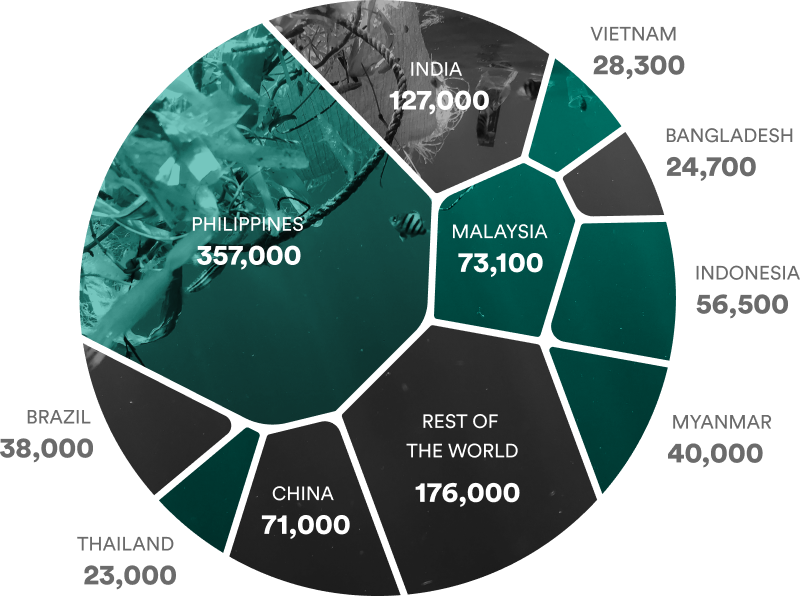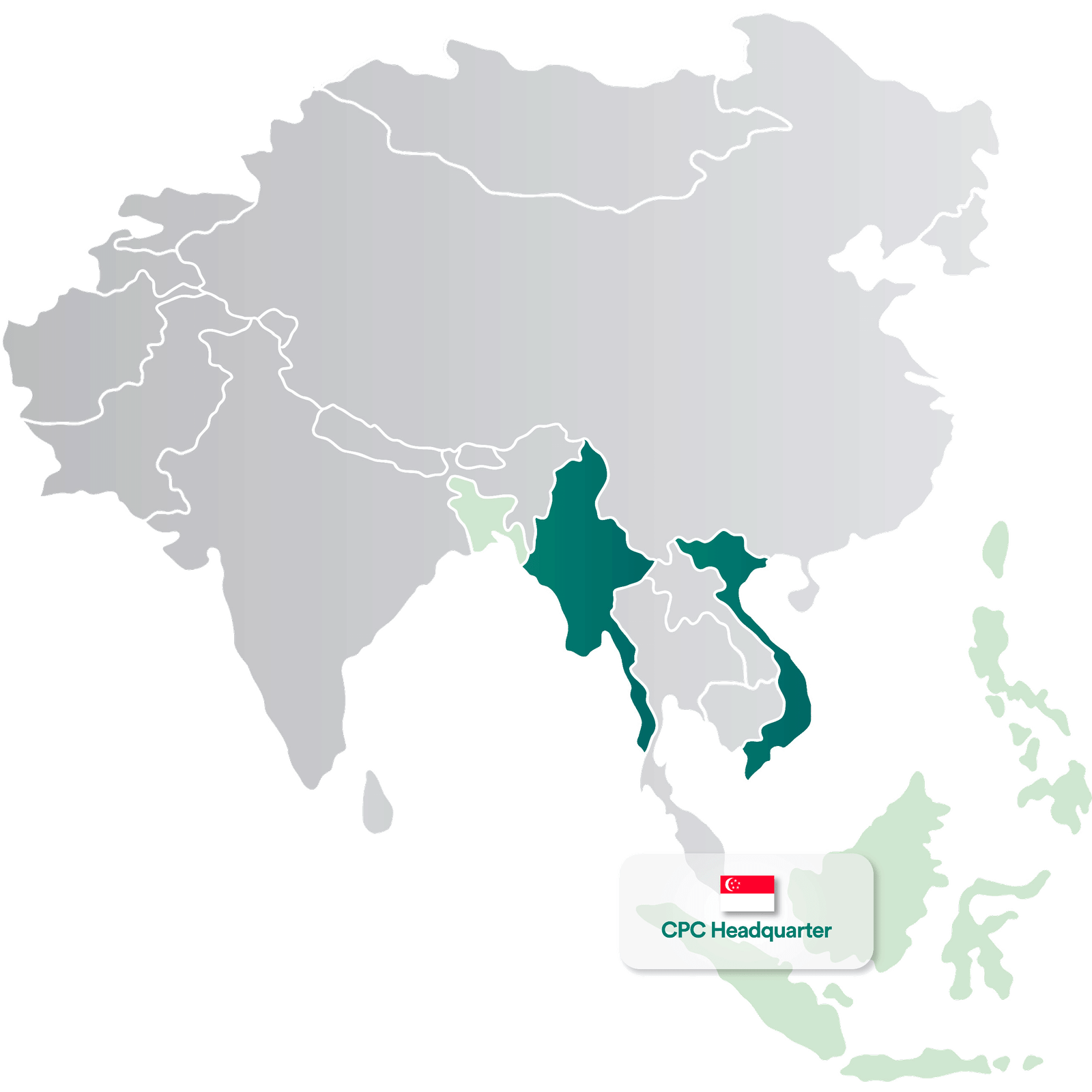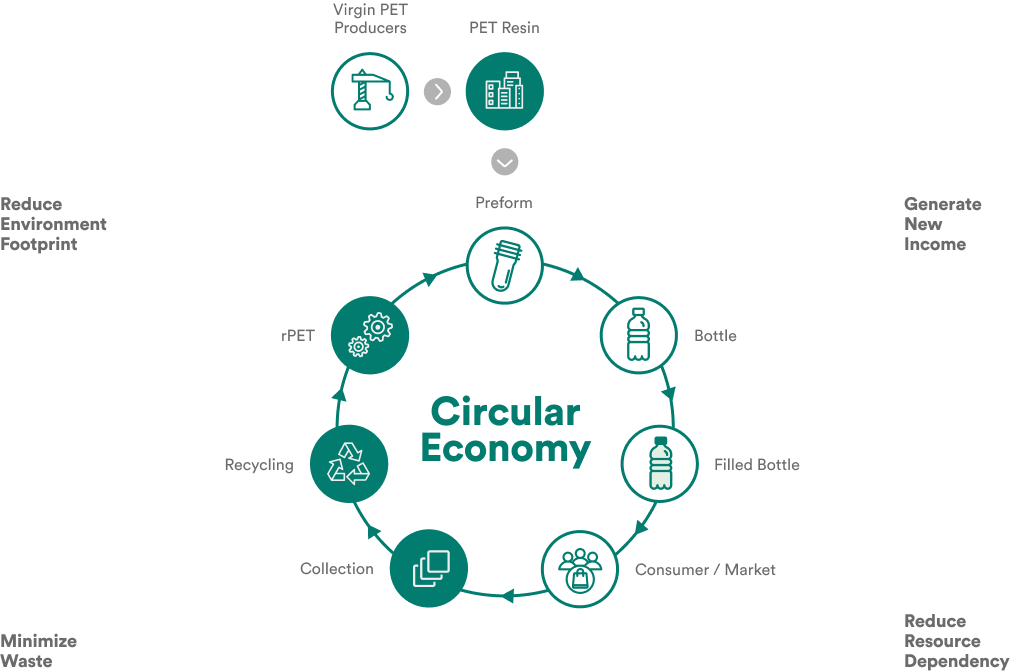Climate change is the biggest threat to our ecosystems and economies
PET circularity is critical for a sustainable future
Singapore Head-Quartered Full-Circular PET Plastic Recycler with Presence in Myanmar and Vietnam
THE ISSUE AT HAND
Southeast Asian countries are major contributors to ocean plastic pollution
Five countries from the region are amongst the top ten global polluters. While the area recycles 54% of its waste, 36% ends up in landfills, resulting in 10% leakage into the ocean.

Annual estimation in metric ton
More than 1000 rivers account for 80% of global riverine plastic emissions into the ocean,
Source: science.org
Why is that?
Due to downcycling, when manufacturers use the original object to produce a lesser quality product, plastic waste has a low demand for recollection.
Why is that?
Due to downcycling, when manufacturers use the original object to produce a lesser quality product, plastic waste has a low demand for recollection.

54%
Averge recycling rate

36%
Average landfill rate

10%
Leakage into ocean
Represents
USD 850M
In economic loss

54%
Average recycling rate

36%
Average landfill rate

10%
Leakage into ocean
Represents
USD 850M
In economic loss
Used PET Waste Are Recycled Into Food-Grade PET Products to Minimize Energy Intensive New PET Materials.
Vertically integrated supply chain for traceability and transaparency.
WE ARE DRIVING THE CIRCULAR ECONOMY
In Southeast Asia and Beyond
We aim to leverage our expertise and replicate our business model across the region. Our vertically intergrated business model ensures positive socioeconomic impacts throughout the supply chain across all stakeholders.





